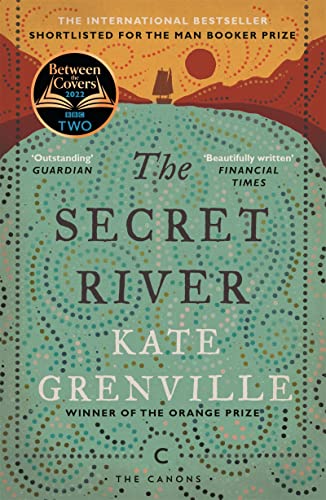Thornhill's Upward Climb
By the end of The Secret River, Will Thornhill has become a member of Australia’s early land-owning class. This social status is demonstrated through his accumulation of wealth and ownership. He owns a large villa, is considered a part of early Australian gentry, and has enough money to buy his wife and children whatever they desire.
The question one may pose is how did Thornhill, a convict arriving in New South Wales at the lowest point of his life having to serve a life sentence, rise to the top? The answer is a combination of early colonization of Australia, which led to a developing social structure as well as his violent partaking in colonialism in order to secure ownership of “his land.”
The Journey of Social Mobility
When Will arrives in New South Wales, he is still treated lowly, although never as bad as the Aboriginal peoples who are viewed as “thieving blacks”. He still retains a sense of superiority over them even while his wife, Sal, becomes his “master” while he is serving his sentence. However, New South Wales offers Thornhill unique opportunities to improve his standing in the class system because it is a new English colony and is therefore still developing its own social structure.
As a result, Thornhill only spends four years and five months as a convict and a man who isn't truly free, after which point he's able to join the Australian middle class and take land for himself. He begins asserting his dominance over those in lower positions than him, replicating past interactions he had with English gentry. For example, he is quick to flaunt his higher social status over his own convict servants, Ned and Dan. Thornhill recollects,“He thought of the way Suckling smiled, not showing any teeth and tried it himself. It is Mr. Thornhill, Dan, he said. You would do well to remember” (181). Later on he reminisces, “The reality was that they had power of almost life and death over Dan Oldfield” (183). As Will realizes the ease of dehumanizing people of a lower social standing than himself, he reflects this mindset when interacting with the Aborigines that live near Thornhill's Point.
While Sal desires to return to London, Thornhill realizes he will always be seen as a convict and would be giving up his current status in Australia. Will points out, “The Hawkesbury was the one place where no man could set himself up as better than his neighbor. They were all emancipists in that private valley. There, and only there, a man did not have to drag his stinking past around behind him like a dead dog. (176) The river functions not only as Will’s idea of success and status, but also an area that has not yet been touched by colonialism. It enables ticket-of-leave convicts to become settler farmers by providing them with access to the fertile Hawkesbury area while also taking them closer to where the Aboriginal peoples live. The contact zone established shows competing claims to land and Will’s realization that ownership of the land is not truly possible with the indigenous people living on it. Try as he might to see the river as “a place of promise” and a passageway to the “blank page on which a man might write a new life” (130), Will remains an unsettled settler whose security and ownership is under threat by the presence of the Indigenous inhabitants. He can escape his convict past but he can’t escape the unseen presence of the Indigenous people threatening his future wealth and success.
Direct Colonialism
Will regards the Aboriginals as being wild, inferior, and dangerous. He considers them to be “lower in the order of things even than they were” (92). Slowly, Will takes on the belief that in order for civilization to be preserved, the Aboriginals must be kept under control or eliminated. New South Wales had become “a machine in which some men would be crushed and spat out, and others would rise to heights they would not have dreamed of before” (182). Will must make the decision whether to abandon the land and therefore lose social mobility, or defend his interests. In order to preserve the future prosperity and social status, Will must use violence against the Aboriginal peoples by joining with the other men of the area to “disperse” the local Indigenous people. If he had decided not to directly participate, it could have led to him losing the land and going back to England, which was social suicide.
The tragedy and violence of the situation (showing the negatives of colonialism) is contrasted with the wealth and status Will and his family end up with (an advantage of colonialism for those who were in the position of colonizers).
Results and Analysis
In the end, Will surpasses all expectations. From being an extremely poor boy growing up in London, to convict status in New South Wales, to becoming an emancipist, to eventual immersion with early Australian gentry as a powerful landowner, his upward social mobility reflects his taking advantage of colonialism. He is able to reinvent his family history so that he is said to have been “not born in dirty Bermondsey but in clean Kent” (321), further demonstrating how Will was able to use the opportunities of Australia to better himself. He no longer fears his land being taken away by the Aboriginals because of the violence that he perpetrated against them. At the end of the day, his decision to directly participate in colonialism made him rich and elevated in status. Colonization of Australia in the first place gave Will the chance to elevate himself in a society that was barely forming. This "blank slate" mindset along with exploitation of the Aboriginals made it easier to Will to convert his social status.
